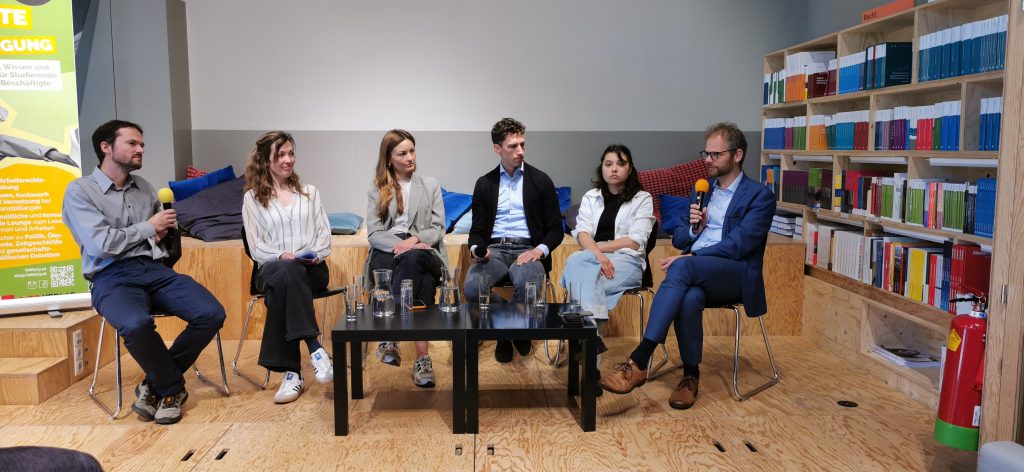The Digital Future of Democracy: “Demokratie 4.0”
Last week, our group member Martin Lackner participated in a panel discussion on the digital future of democracy (German: “Demokratie 4.0. – Mitbestimmen im 21. Jahrhundert“). The discussion took place at FAKTory and was organized by Arbeiterkammer Wien. Fellow panelists included Romy Grasgruber-Kerl (Decidim Austria, mitgestalten Partizipationsbüro), Fridolin Herkommer (economist, Arbeiterkammer Vienna), Klemens Himpele (CIO – City of Vienna), and Alena Wacenovsky (journalist at “Chefredaktion”). The discussion was skillfully moderated by Sina Moussa-Lipp.

The 75-minute discussion explored how digital technologies are transforming democratic participation and decision-making processes. Martin highlighted participatory budgeting initiatives as a successful example of introducing new ideas to democracy, pointing to implementations in cities like Paris, Amsterdam, and various locations in Poland, as well as the “Kinderund Jugendmillion” in Vienna. He explained how computational social choice research can help design fair algorithms for collective decision-making. Martin also presented research-based future improvements to democracy through the concept of “Virtual Democracy,” an application of computational social choice research where personalized AI models could learn citizens’ political preferences and potentially represent them in decision-making processes. While acknowledging significant challenges with this approach for major political decisions, Martin emphasized its potential for everyday democratic participation in contexts like workplace decisions or community planning.
The panel addressed key questions about inclusivity, the impact of social media on democracy, and digital participation. A particularly noteworthy consensus emerged around the question of whether digital tools increase or decrease inclusion in democratic processes – all participants viewed digitalization as having positive potential in this regard. Klemens Himpele brought practical perspectives on cybersecurity concerns facing democratic systems, while Alena Wacenovsky offered insights on engaging younger generations through social media. The discussion explored how technology might restore trust in political systems through more accessible participation channels. Martin’s vision emphasized democracy with more resources, accurate representation of public opinion in political decisions, personalized explanations of policy choices, and direct channels for citizens to voice their views. A conference on Digital Humanism planned for late May will continue these important conversations.
